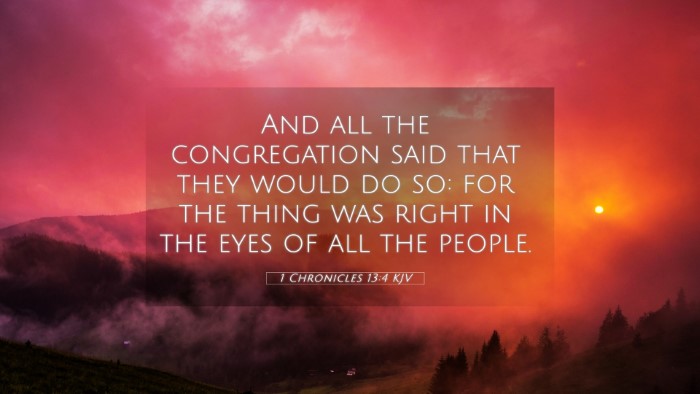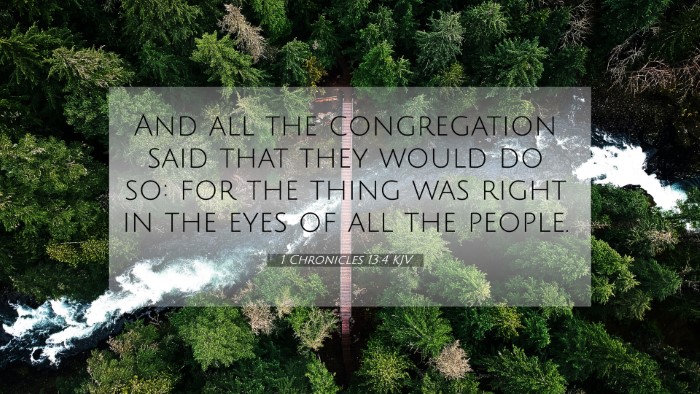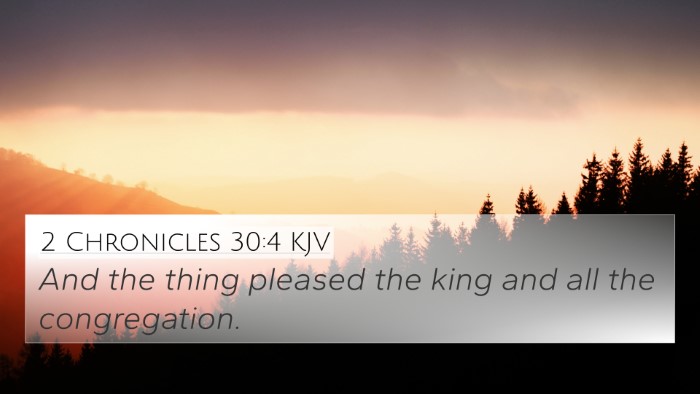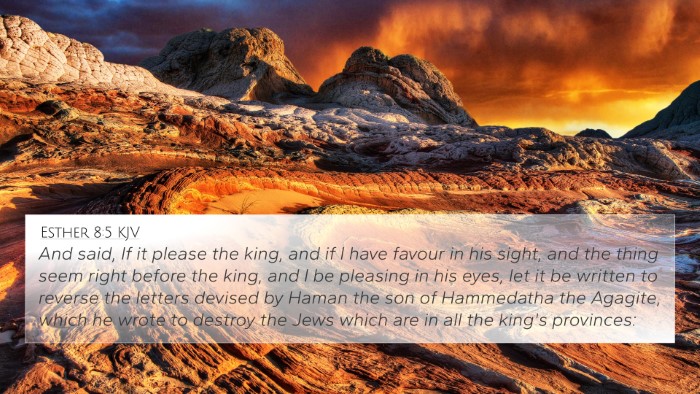Understanding 1 Chronicles 13:4
1 Chronicles 13:4 states: "If it seems good to you, and if it is from the Lord our God, let us send word to all our brothers who remain in all the lands of Israel, and to the priests and Levites in their cities, that they may gather to us." This verse encapsulates a significant moment in Israel's history where David seeks consensus and divine approval in his actions.
To delve deeper into the meaning of this verse, we draw insights from esteemed public domain commentaries including those of Matthew Henry, Albert Barnes, and Adam Clarke. Below is a summary of their collective interpretations:
Commentary Insights
-
Matthew Henry: Henry emphasizes the importance of seeking the counsel of the people in matters that concern the collective. He draws attention to David's desire to include the entire nation of Israel in the decision-making process regarding the Ark of the Covenant. This reflects a model of governance that values the input and consensus of the community.
-
Albert Barnes: Barnes highlights the theological implications of David's plan, noting that it is not merely an organizational effort but a spiritual undertaking intended to restore the worship of Yahweh. He points out that the gathering of the Israelites signifies a return to the roots of their faith and the importance of united worship.
-
Adam Clarke: Clarke elaborates on the procedural aspect of the decision, emphasizing that David’s approach demonstrates a respect for authority and order. By reaching out to the priests and Levites, David acknowledges their roles in the religious practices of the nation and indicates a desire for a structured revival of worship.
Thematic Connections
The themes reflected in 1 Chronicles 13:4 connect with several other scripture passages that discuss collective worship, leadership, and the importance of seeking God’s will. Here are key cross-references that illuminate the broader narrative:
- Hebrews 10:24-25: Encourages the gathering of believers for worship and mutual encouragement.
- Exodus 25:22: References God’s presence between the cherubim, highlighting the sacredness of the Ark of the Covenant.
- Deuteronomy 31:12: Calls for the assembly of Israel for instruction and remembrance.
- 1 Samuel 10:19-21: Describes the importance of communal participation in God’s plans for leadership.
- 2 Samuel 6:2: Reflects on a similar event when David intended to bring the Ark to Jerusalem, emphasizing the importance of God’s presence among His people.
- Isaiah 1:18-19: Invites the people to come together for reconciliation and to return to righteousness.
- Acts 13:2: Illustrates the early church seeking the Holy Spirit’s guidance collectively for ministry decisions.
Applications of Cross-Referencing
Understanding 1 Chronicles 13:4 involves recognizing the importance of community and divine guidance in decision-making. By using tools for Bible cross-referencing, one can explore numerous scriptural parallels that support the themes of unity and worship:
Tools for Bible Cross-Referencing
- Bible Concordance: A resource that allows you to search for specific words and phrases across the entire Bible.
- Bible Cross-Reference Guide: Provides a systematic way to find related verses and themes.
- Cross-Reference Bible Study: Involves examining verses that connect thematically or contextually for deeper understanding.
Engagement with Scripture
Engaging with the Scriptures through cross-referencing helps illuminate the inter-Biblical dialogue present within the texts. Each verse interacts with others, creating layers of meaning and insight that enrich our understanding of Biblical principles, actions, and the nature of God. This leads to richer interpretations and applications in daily life.
In conclusion, 1 Chronicles 13:4 teaches us the vital role of communal decision-making under God's guidance. Emphasizing worship's collective nature encourages believers to actively participate in their faith and remain connected with one another through scriptural teachings. The verses referenced not only parallel David's intentions but also provide a broader narrative about the importance of God in the governance and spiritual life of His people.






